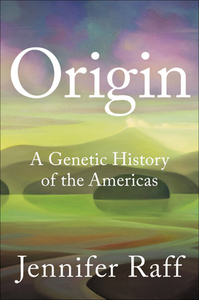Take a photo of a barcode or cover
challenging
informative
reflective
medium-paced
There is a certain section of humanity's past where genetic studied can reveal new information. Raff's book brings some of that information to the general public, I really enjoyed it.
challenging
slow-paced
So much of this book has nothing at all to do with the premise of it and the constant sermonising about white colonization that takes up the first 30% of the book has nothing at all to do with genetics or native origins and has no place in this book.
informative
reflective
medium-paced
informative
reflective
medium-paced
I think Origin was a really great blend of layman explanations and extra depth for people a bit more scientifically inclined. This topic/field really interests me, so the book was a quick and easy read for me. Learning about how scientists use the molecular mutational clock, haplogroups, SNPs, etc. to estimate population origins and then correlate that with archeological sites and lithics to make population models was the coolest part to me. Understanding the history of the field and how that plays into today’s ethical considerations is also an important feature of the book. The only critique is that I felt like she left us hanging on what ever happened with her findings in chapter 5, and in chapter 8 with the Utqiagvik cemetery samples.
A little disappointing. I'm a layperson and I was baffled by all the back and forth in the first third of the book. It was sort of like being at a party and talking to someone who works in a totally different field about their work politics. The middle third which lays out new theories about human habitation of the Americas was good as were the stories based on genetic finds (though maybe a bit romanticized). Also liked the section about working in the genetics lab.
informative
slow-paced
If you are interested in the pre-Columbian period of the Americas and particularly how humans first arrived in the western hemisphere, read this book. If you are more generally interested in genetics and how genetics can be used to understand the past, read this book.
ORIGIN is scholarly, but written for a non-academic audience. Still, there are sections that may be difficult for someone to understand who does not have a background in genetics or archaeology. I know I had to re-read a few sections to understand them.
I give this book 5 stars because I found it utterly fascinating. Is it the best written science-explainer-type book I've ever read? No. But, it is certainly one of the most interesting. I've already recommended it to several of my friends and family.
ORIGIN is scholarly, but written for a non-academic audience. Still, there are sections that may be difficult for someone to understand who does not have a background in genetics or archaeology. I know I had to re-read a few sections to understand them.
I give this book 5 stars because I found it utterly fascinating. Is it the best written science-explainer-type book I've ever read? No. But, it is certainly one of the most interesting. I've already recommended it to several of my friends and family.
informative
reflective



